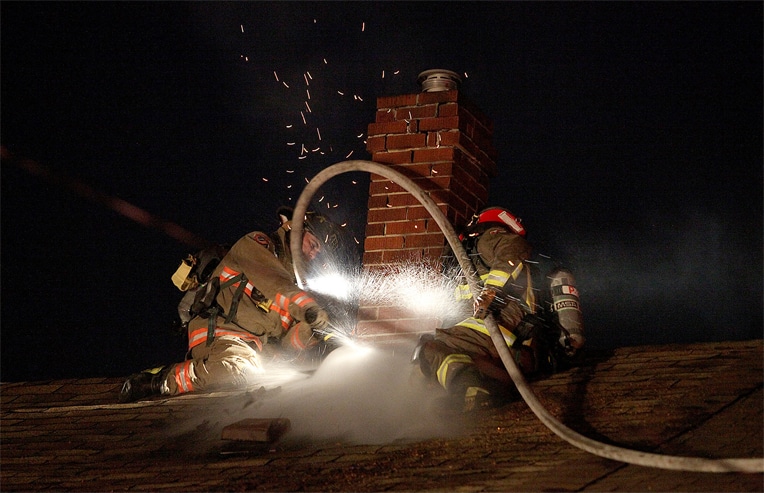Get the help you need right now 855-900-8437 Get Help Now
Get the help you need right now 855-900-8437 Get Help Now
March 17, 2020
Addiction can damage relationships with family, friends and coworkers. Given this reality, life after treatment often includes efforts to repair damaged relationships. For fire fighters, this includes relationships with family and close friends – and with their crew.
Repairing relationships in recovery requires effort on your part. It’s helpful to know that forgiveness and recovery go hand-in-hand. This means coming to terms with the fact that your actions hurt people while you were in active addiction. Maybe you failed to fulfill duties at work and your coworkers suffered. Or perhaps you came to work impaired or even stole from friends to support your substance use. Whatever the case, repairing relationships in recovery involves making amends with people you hurt and asking for their forgiveness.
Making amends may look different depending on the type of relationship and the impact of your addiction. For example, your addiction likely affected your relationship with fellow crew members differently than with family members and other loved ones.

It is likely that your fellow crew members experienced negative consequences due to your addiction. After all, a common symptom of a substance use disorder is neglecting to fulfill duties at work. Another symptom includes giving up work-related activities. This may mean that you failed to show up for shifts, neglected to complete important tasks or simply were absent as a crew member.
Repairing relationships with your crew members requires you to acknowledge the mistakes you made and ask for forgiveness. Understand that some crew members may be reluctant to accept your apology, so earning their forgiveness and trust will require you to demonstrate changes in your behavior and to stay true to your word. Over time, other crew members will see that you have made changes and can be trusted to take responsibility for your actions.
It is likely that your family relationships have also been damaged as a result of your addiction. If you were using family finances to support your addiction, neglecting your marriage or failing to fulfill parenting duties, your family has felt the impact of your addiction.
Marriage and family therapy may be recommended to help your marriage recover. A review of 13 studies demonstrated that couples therapy in addiction treatment provides benefits beyond individual therapy on its own. One major benefit of couples therapy, according to the research, is an improvement in relationship satisfaction.
Your friendships may have also suffered during your addiction. Perhaps you ignored old friends in favor of a new circle of friends who used drugs and alcohol with you. Maybe you stole from friends or lied to them throughout the height of your addiction. Repairing damaged friendships requires making amends for whatever actions harmed these relationships. Communication in recovery is also critical to repairing your friendships. It is important to let friends know that you struggled with an addiction but have been through treatment and are making positive changes in your life.
Friends in recovery can be helpful, but it is also important to recognize that some friendships may be harmful to your recovery. For example, research shows that the people, places and things associated with your addiction can trigger a relapse, so you may have to set boundaries and leave behind friends who are still actively using drugs and alcohol. Relationships with friends who are still active in their addiction may not be repairable.
Whether you’re trying to repair friendships, your marriage or relationships with crew members after recovery, remember that trust in recovery takes time. The people who were harmed during your addiction may not be willing to open up and trust you right away. By staying committed to your recovery and your desire to make amends, you will show people over time that you can be trusted again.
You may want relationships to return to normal right away, but most people will need to see a period of changed behavior before they can start to rebuild their trust in you. That’s why having patience in recovery is also necessary.
If you are a fire fighter living with addiction, the IAFF Center of Excellence for Behavioral Health and Recovery provides comprehensive addiction and mental health services to meet your needs. Contact us today to begin your journey toward recovery.
Sources:
Homish, Gregory G; Leonard, Kenneth E.; and Cornelius, Jack R. “Illicit drug use and marital satisfaction.” Addictive Behaviors, February 2008. Accessed February 22, 2020.
Kosten, Thomas. “Substance use disorders.” Merck Manual Professional Version, October 2018. Accessed February 22, 2020.
Powers, Mark B; Vedel, Ellen; and Emmelkamp, Paul M.G. “Behavioral couples therapy (BCT) for alcohol and drug use disorders: A meta-analysis.” Clinical Psychology Review, July 2008. Accessed February 22, 2020.
Melemis, Steven M. “Relapse prevention and the five rules of recovery.” The Yale Journal of Biology and Medicine, September 2015. Accessed February 22, 2020.